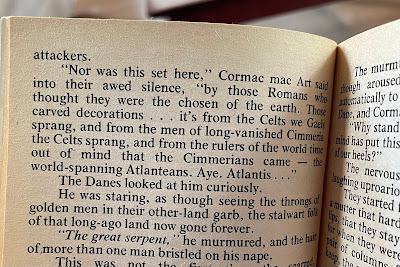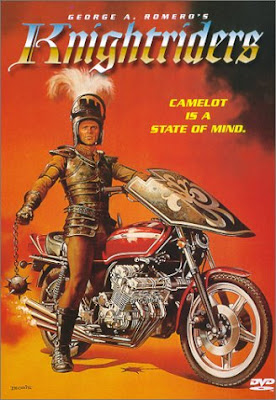 |
| Carved Sunday, ready to light up the night... |
Halloween always has been and still remains my favorite holiday. Christmas gives it a hell of a run but ultimately loses to Samhain.
Why?
There are zero expectations with Halloween. No dinner parties to host. No gift-giving or spending inordinate amounts of money. I would like to spend more on candy but we get no more than 20 kids visiting our home, located on a relatively isolated cul-de-sac. So I’m "forced" to eat the candy we annually overbuy.
Horror is celebrated. The weird is celebrated. Being weird is welcomed, for at least one day a year.
You can put on a costume and become someone else.
I always find myself experiencing a familiar stir about mid-September: The call to horror. I read a lot—though not as much as I’d like—and one secret to reading is cutting out television. But on Halloween I always up my movie quotient with the macabre.
As mentioned I watched Black Sabbath. I watched the old 1979 ‘Salem’s Lot. A recent film, Oculus (2013).
Last night I watched Captain Kronos: Vampire Hunter.
I loved it. I’ve never seen this one before, based on the title I assumed it was going to be wildly over the top, like the Rocky Horror Picture Show. It was over the top… but 70s British reserved, slow-paced by our modern standards, over the top. Very Hammer, gothic, moody, fun, and sexy. Caroline Munro is a smoke show.
I loved the non-formula, the awkwardness, even the objective spots of poor film-making, because it’s blessedly different. The vampire formula is tweaked a bit, with the blood suckers leaving their victims an aged husk, beautiful young women reduced to corpses of crones. It’s got some great sword-fighting, an interesting sword-and-sorcery/Solomon Kane-esque protagonist with a fun hunchback sidekick. And some well-placed humor, including this sexually charged quip delivered with an over-the-top non-nuance that had me laughing out loud. Forgive the poor quality.
I’m reading horror too, Stephen King’s Cujo. A classic monster story of a harmless Saint Bernard gone mad after a bat bite on the snout infects him with rabies. I haven’t read this one since I was probably, oh, 13 or so? So while I know the basic beats, it feels new to me. I had forgotten about Donna Trenton’s affair, and to King’s credit this adds a complexity I hadn’t seen before. I think Cujo and the monster in the closet are symbols of the monster in us, something terrible that can be awakened in the right (i.e., wrong) circumstance. Tad can sense something in his wrong in his idyllic home that he can’t articulate.
I love decorating for Halloween, too.
I added a new skeleton to my front porch this year, given life with a black cloak and a shepherd hook. Hanging there beside the stairs it might touch your arm with a bony finger as you ascend the stairs … or maybe that was the wind.
I carved jack-o-lanterns with my daughter on Sunday. At age 23 she still maintains the tradition of humoring her old man, though I know she enjoys it. And it keeps away the evil spirits when the veil is at its thinnest.
I cannot express how much joy this brings me and how lucky I am to have a loving family.
I’ve got Hannah reading Pet Sematary. She is a budding horror aficionado who insisted I watch The Haunting of Hill House TV series earlier this year. I think it was started by her teenage obsession with Stranger Things, another show she encouraged me to watch (and I enjoyed; more on that here).
Hannah was later inspired to read Shirley Jackson’s novel and now I’ve given her the gift of her first King. Maybe movies can inspire readers, though she’s always been one.
We can read horror any time we want, we can recommend films and books on any given Tuesday, but Halloween gives me an excuse. And I love it.
I will break out some Poe, the master, before and/or on Halloween itself. Until then here’s one of my favorites.
Annabel Lee
It was many and many a year ago,
In a kingdom by the sea
That a maiden there lived whom you may know
By the name of Annabel Lee--
And this maiden she lived with no other thought
Than to love and be loved by me.
I was a child and she was a child,
In this kingdom by the sea,
But we loved with a love that was more than love--
I and my Annabel Lee--
With a love that the winged seraphs of heaven
Coveted her and me.
And this was the reason that, long ago,
In this kingdom by the sea,
A wind blew out of a cloud, chilling
My beautiful Annabel Lee;
So that her highborn kinsmen came
And bore her away from me,
To shut her up in a sepulchre
In this kingdom by the sea.
The angels, not half so happy in heaven,
Went envying her and me--
Yes!--that was the reason (as all men know,
In this kingdom by the sea)
That the wind came out of the cloud by night,
Chilling and killing my Annabel Lee.
But our love it was stronger by far than the love
Of those who were older than we--
Of many far wiser than we--
And neither the angels in heaven above,
Nor the demons down under the sea,
Can ever dissever my soul from the soul
Of the beautiful Annabel Lee:
For the moon never beams, without bringing me dreams
Of the beautiful Annabel Lee:
And the stars never rise, but I feel the bright eyes
Of the beautiful Annabel Lee:
And so, all the night-tide, I lay down by the side
Of my darling--my darling--my life and my bride,
In the sepulchre there by the sea--
In her tomb by the sounding sea.






















